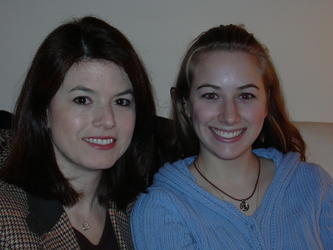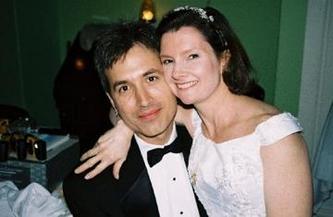Of all the stories in this Flannery O’Connor book that I’m reading, this has to have been the most powerful one I’ve read. There’s a couple left in the book now to go, but boy did this one pack a wallop.
Maybe it’s the title, but I don’t know. I’m not sure how to really take the use of the word nigger in all the stories. I generally disapprove, and generally instantly dislike whoever uses the term. O’Connor makes it a little easier when she makes so many of the characters dislikable anyway.
But The Artificial Nigger starts out making Mr. Head such a grand, fine character — The moonlight waits for his permission to enter and cast a dignifying light on everything. The chair is attentive and awaits his order. His trousers are like the garment of some great man. O’Connor describes him physically thus:
Sixty years had not dulled his responses; his physical reactions, like his moral ones, were guided by his will and strong character, and these could be seen plainly in his features.
and
His eyes were alert but quiet, and in the miraculous moonlight they had a look of composure and of ancient wisdom as if they belonged to one of the great guides of men. He might have been Vergil summoned in the middle of the night to go to Dante or better, Raphael, awakened by a blast of God’s light to fly to the side of Tobias.
She introduces him to us in the most glowing terms. He has moral will, a strong character, ancient wisdom. So it’s really much harder then to dislike him. I think I even began the story with the understanding that the title referred to him, that he was African-American and would be later the victim of the inevitable O’Connor-esqe tragedy. But then when he points out the black man to the unfortunate Nelson, and refers to him, the man, as a nigger, then all is different.
So maybe that’s part of O’Connors trickery, when the story turns out to be a journey, and about Mr. Head’s fall from grace. We feel that fall better, we internalize it better, because we’ve been set up to admire him from the beginning. Mr. Head loses his way, he loses our sympathy and Nelson’s sympathy, and then he loses his very humanity when he profoundly and disgustingly denies his kinship to Nelson. Like Peter denying Christ.
But then they re-establish their kinship, and Mr. Head regains his humanity, over the small statue, the titular statue.
“An artificial nigger!” Nelson repeated in Mr. Head’s exact tone.
The two of them stood there with their necks forward at almost the same angle and their shoulders curved in almost exactly the same way and their hands trembling identically in their pockets.
Mr. Head looked like an ancient child and Nelson like a miniature old man. They stood gazing at the artificial Negro as if they were faced with some great mystery, some monument to another’s victory that brought them together in their common defeat. They could both feel it dissolving their differences like an action of mercy.
So, um, yeah, great. I’m supposed to be pleased then that they can again establish their great bond together in their racism? This is a happy ending? Why does it have to be racism that bonds them? Is this O’Connor’s way of being snarky toward her own southern heritage, or towards non-Catholic southerners?
But then maybe the racism is the point. It itself is their sin. And O’Connor goes all out in the end, explaining the horror of sin and the serenity of mercy with astonishing power and beauty.
Mr. Head stood very still and felt the action of mercy touch him again but this time he knew that there were no words in the world that could name it. He understood that it grew out of agony, which is not denied to any man and which is given in strange ways to children. He understood it was all a man could carry into death to give his Maker and he suddenly burned with shame that he had so little of it to take with him. He stood appalled, judging himself with the thoroughness of God, while the action of mercy covered his pride like a flame and consumed it. He had never thought him self a great sinner before but he saw now that his true depravity had been hidden from him lest it cause him despair. He realized that he was forgiven for sins from the beginning of time, when he had conceived in his own heart the sin of Adam, until the present, when he had denied poor Nelson. He saw that no Sin was too monstrous for him to claim as his own, and since God loved in proportion as He forgave, he felt ready at that instant to enter Paradise.
And then the train pull away from them, disappearing “like a frightened serpent into the woods.” Like the serpent from the Garden, of course. Only this time defeated. They have received mercy and temptation leaves them alone. And Nelson declares that he will never return to Atlanta, to the place of their fall from grace.




